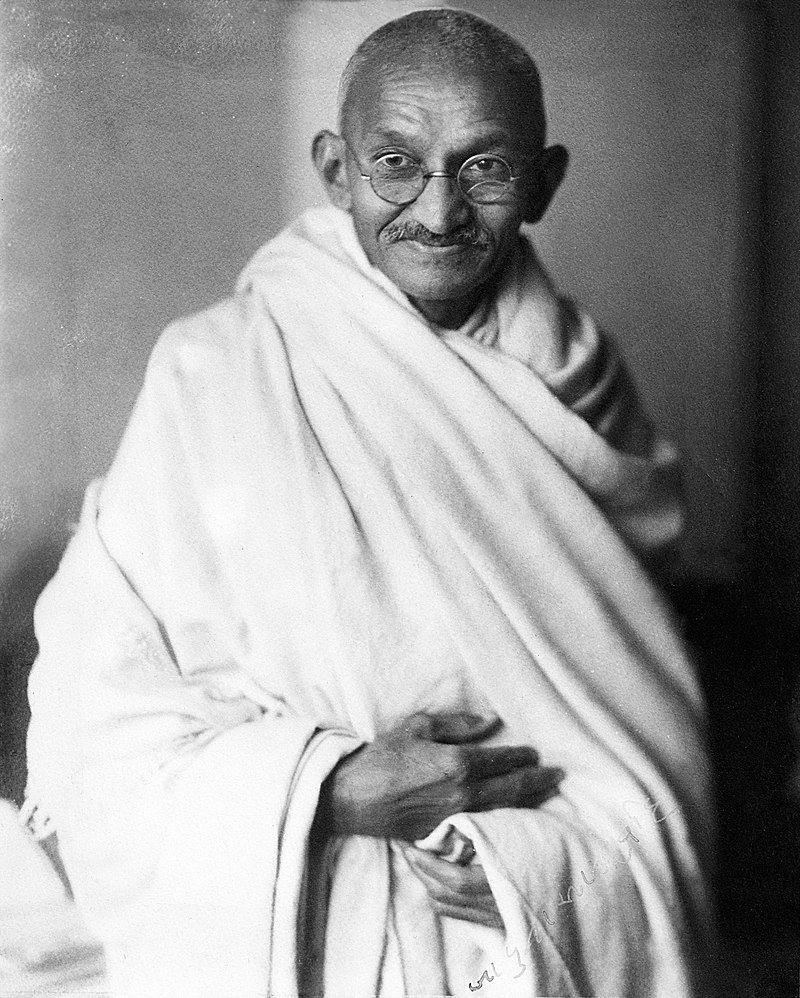Mahatma Gandhi: A Leader of Peace and Change
Mahatma Gandhi was a remarkable person who lived in India a long time ago. He was born on October 2, 1869, and even as a little boy, he loved exploring and learning about the world around him. Gandhi studied law in faraway London but instead of becoming a regular lawyer, he became a leader in a movement to make India free from British rule. He believed in simple living and even wore simple clothes to show that everyone could be powerful and strong, no matter how they dressed. One of the coolest things he did was something called the "Salt March" in 1930. Back then, the British government had a monopoly on salt, and Gandhi thought that was not fair. So, he walked a long way to the sea, making salt along the way to show that people could make their own salt and didn't have to buy it from the British. Gandhi was also a big champion of fairness. He wanted everyone, no matter where they came from or what they looked like, to be treated the same. He fought against discrimination and believed in peaceful ways to make change happen. In 1947, after many years of hard work, India finally became free from British rule. Sadly, in 1948, someone didn't agree with Gandhi's ideas and he was shot and passed away. But his teachings about peace and fairness still inspire people all around the world today. So, when we think about Gandhi, we remember him as a leader who showed that even one person, through peaceful and fair actions, can make a huge difference in the world.

Fun Facts
Young Explorer: Mohandas Karamchand Gandhi, fondly known as Mahatma Gandhi, was born on October 2, 1869, in Porbandar, India. As a child, he was curious and loved exploring nature.
Lawyer Turned Leader: Gandhi initially studied law in London but later became a leader in the Indian independence movement against British rule.
Simple Lifestyle: Gandhi believed in simple living and wore a traditional Indian dhoti, a simple piece of cloth, as a symbol of self-reliance and independence.
Salt March: In 1930, Gandhi led the Salt March, a peaceful protest against the British salt monopoly. This event showcased his commitment to nonviolent resistance.
Champion of Equality: Gandhi fought against discrimination and untouchability in India, advocating for equal rights for everyone, regardless of their background.
Timeline
1869 Gandhi is born in Porbandar, India.
1893 Gandhi goes to South Africa and begins his activism against racial discrimination.
1915 He returns to India and becomes a leader in the Indian independence movement.
1930 Gandhi leads the Salt March, a pivotal moment in the fight against British rule.
1942 During World War II, Gandhi launches the Quit India Movement, demanding an end to British rule.
1947 India gains independence from British rule.
1948 Gandhi is assassinated, but his teachings continue to inspire movements for civil rights and freedom worldwide.
Reference Books for Elementary Students
"Gandhi: A March to the Sea" by Alice B. McGinty: This book introduces young readers to the Salt March, showcasing Gandhi's commitment to nonviolence.
"Who Was Mahatma Gandhi?" by Dana Meachen Rau: This is part of the "Who Was?" series, which is excellent for elementary students.
"Gandhi" by Demi: This beautifully illustrated book provides an overview of Gandhi's life and principles in a way that is accessible to young readers.
"Gandhi: The March to the Sea" by Kathryn Lasky: Another great book for young readers that focuses on Gandhi's role in the Salt March, a key event in India's fight for independence.
These books offer engaging stories and illustrations that make learning about Mahatma Gandhi enjoyable for elementary students.